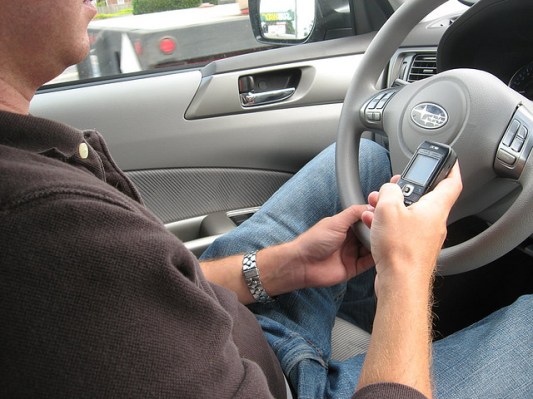In California, drivers can now be pulled over for using their GPS while driving. Extending the state’s current ban on texting while driving, an appellate court in California v. Spriggs argued that the “distraction would be present whether the wireless telephone was being used as a telephone, a GPS navigator a clock or a device for sending and receiving text messages and emails.”
So-called “distracted driving” laws have a mixed history of efficacy. In 2010, a study in the American Journal of Public Health found that “Any reduction in accidents following texting bans is short-lived, however, with accidents returning to near former levels within a few months.”
The most recent study, however, found that such laws are “moderately successful,” but only if they are strictly enforced. The study, to be published in next month’s American Economic Journal: Applied Economics, only looked at scenarios where the blame could be squarely placed on (digitally) distracted driving: single-vehicle, single-occupancy crashes. In some states, for instance, police cannot pull a driver over for texting while driving, but only add on a citation to another violation. In states with “strong” bans, driving fatalities were reduced 8 percent.
In Spriggs, the judge left it open as to whether the law should also apply to checking things like email, or whether drivers could safely use a hands-free version of GPS. Either way, the National Safety Council warns, “there is no research or evidence that indicates voice-activated technologies eliminate or even reduce the distraction to the drivers’ mind.”
Looks like we won’t be safe on the road until we all get robotic cars. Appropriately enough, thanks to Google’s powerful lobbying, they’re now legal in California.
